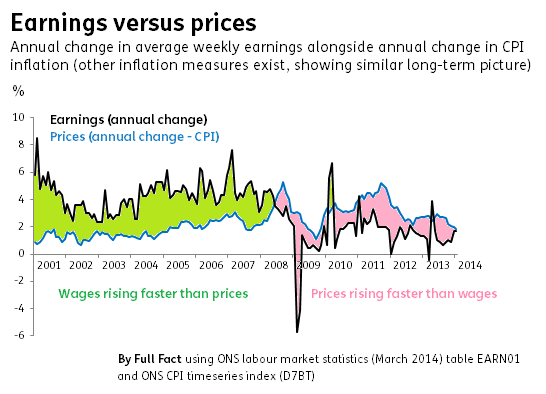How inflation could save you £500 a year
This is a rough picture of what's happened to wages and prices for the last decade and a half:
Labour often talks about the trend since the election - albeit using a slightly different measure of inflation. Shadow Work and Pensions Secretary Rachel Reeves this morning repeated the party's line:
"It's clear that David Cameron and Iain Duncan Smith have nothing to say about the cost-of-living crisis which has meant working people have seen their pay fall by £1,600 a year since 2010. [...] Long-term youth unemployment has doubled under David Cameron."
As we've said before, Labour's figures on the cost of living are out of date: taking the latest statistics on average earnings and using their preferred measure of inflation (the Retail Prices Index) there's been a £1,468 fall in gross annual earnings since the election.
The RPI is no longer seen as a robust measure - based on two other commonly-used measures of inflation it's a fall of between £907-£950.
Labour's analysis differs to the government's own analysis (using a different set of figures) which finds wages for the majority rising faster than prices - we've written about the difference between the two analyses today.
Long-term youth unemployment for 18-24 year olds on Jobseeker's Allowance for over a year has doubled since 2010, increasing by 98%. But there's no one definition of long-term youth unemployment and other definitions show a less steep change. We wrote about this last month.
